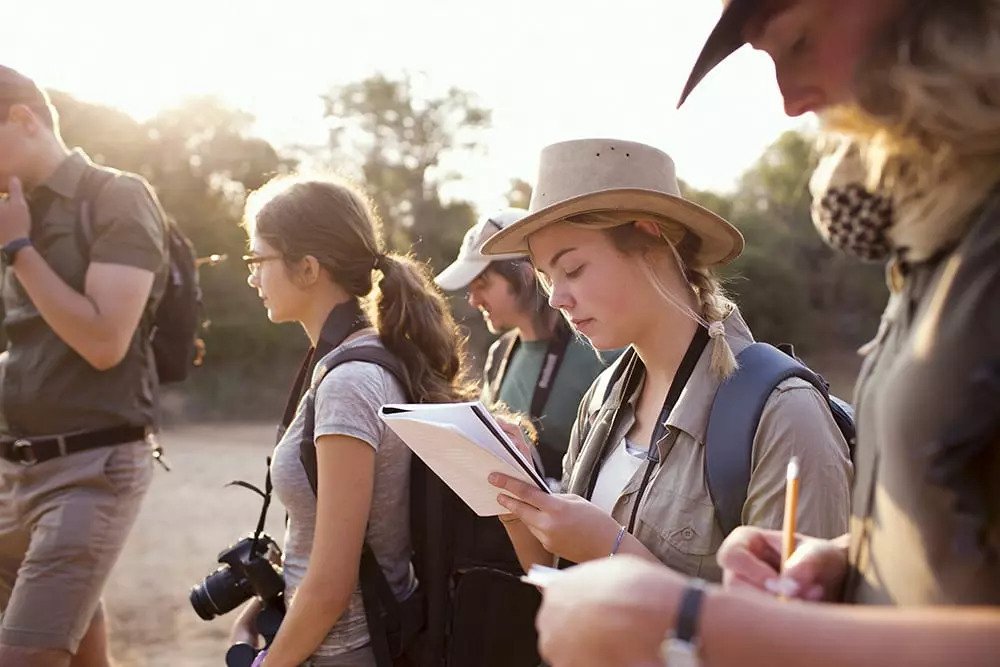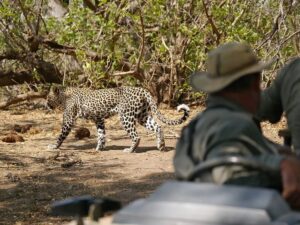What’s it like to undertake an EcoTraining safari guide training course? We get up close and personal with the instructors and students during a 55-day Field Guide Course at Selati Game Reserve in South Africa.
A typical day starts before sunrise with a quick cup of tea or coffee (with breakfast biscuits) and an early morning game drive or bush hike. Warp of well, because it’s pretty chilly in the bush until the sun breaches the eastern horizon.
The drives/hikes are led by experienced and extremely knowledgeable instructors who are fully qualified guides and veterans of some of South Africa’s top game reserves, national parks, wilderness lodges and safari companies.
On a rotating basis, students are responsible for checking the safari vehicle’s oil and water levels, tires and other essentials before rolling out of camp. As further practice for working with actual tourists, they’re also responsible for greeting their passengers and delivering a safety talk before you head out into the Selati bush.
During these journeys, the instructors point out interesting things of the flora and fauna and ask the students to expound on their own knowledge of the bush gleaned from reading, study sessions or previous outings.
After two or three hours of exploring, everyone heads back to camp for breakfast. All meals are cooked by the camp kitchen staff, but students transfer food and drink to an outdoor dining area shaded by trees and canvas, as well as cleaning up afterward.
The middle of a typical day at Selati is filled by lectures, slide shows, mastering flora and fauna flash cards, or quiet learning time in the study hall, which boasts an extensive nature library, wall charts on the region’s flora and fauna, and a whiteboard that lays out the course objectives and tasks.
Lunch is served around 3 p.m. And then in late afternoon — hopefully after a short siesta — it’s time for another game drive or hike as the wildlife emerges to graze or hunt after a day in the shade. Everyone looks forward to sundowners as the orb drops behind the Drakensburg Escarpment.
Dinner is served well after dark, followed by a gab session around the campfire and then early to bed with thoughts of everything you saw and learned that day. But the African adventure is hardly over, because nightfall often brings the sound of cackling hyenas or groaning lions, as well as the possibility that an elephant, leopard or rhino might wander into camp.


0 Comments